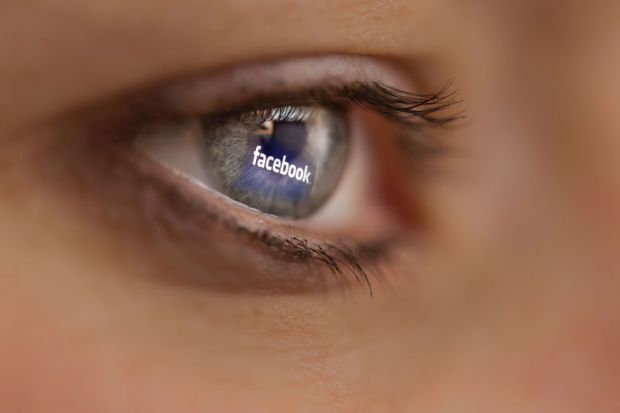Universities with a strong social media presence enjoy greater loyalty from students and potential applicants. As a result, better communication in this area could help their recruitment and retention drives, new research has found.
In a study of more than 200 users of a Northern Cyprus university’s Facebook page, researchers from Eastern Mediterranean University (EMU) found that the strength of the institution’s social media community was related to the “identification with the university community and the university brand which in turn are related to trust and loyalty".
The paper – "Role of social media community in strengthening trust and loyalty for a university", published in the journal Computers in Human Behavior – adds that “higher loyalty” was linked to an “increased contribution” from current students to the university’s educational mission, helping to “improve the educational experience and engagement”, while “positive word of mouth about the university” can aid with “recruiting new students”.
“With the challenges of a diverse and global student body which is expected to continue increasing, universities can benefit from use of social media in developing identity, loyalty and trust,” the paper concludes.
Cem Tanova, one of the authors of the article and vice-rector of EMU in charge of international relations and promotion, said that the research should not be that surprising because students “check Facebook as soon as they wake up”.
“If you can get into that part of their life, then you are developing an awareness for the student, candidate or parent,” he told Times Higher Education. “They will see more of the activities in the university and they will interact by sharing or by liking or by commenting. They’re becoming part of that community, part of that process.”
Raziye Nevzat, co-author and institutional communication, social media and web office coordinator at EMU, added that universities with a strong presence on social media platforms that also provided “instant interaction” would see a significant boost to students’ and applicants’ trust and loyalty.
“Rather than being busy with telephone calls or emails, [applicants] will write to us and get an instant response,” she said. “Digital natives’ attention span is about 10 to 12 seconds, if you don’t answer [quickly] they tend to click on another page. But if you answer them instantly they stay with you.
“We try to attract students by using different tools: we see that Facebook and Instagram are very popular, so we share photographs, we interview them. We talk about ‘human interaction’ rather than news dissemination.”
Ms Nevzat believes “every HEI should apply social media management to their higher administration, as part of a marketing tool or public relations”, despite the ease with which harmful material can be disseminated on social media. A “strong brand and presence” can help to prevent crises, she said.
Professor Tanova said that this was one of the advantages of “real interaction”.
“You may get comments you don’t like, people may share a piece with comments you’re not happy about, but this is the reality of social media, it’s not a one-way street,” he said. “The way universities operated in the past, reputation had to be built over centuries. Therefore it was very difficult for new entrants to be considered as a viable alternative. Through technology you can be noticed.”
Register to continue
Why register?
- Registration is free and only takes a moment
- Once registered, you can read 3 articles a month
- Sign up for our newsletter
Subscribe
Or subscribe for unlimited access to:
- Unlimited access to news, views, insights & reviews
- Digital editions
- Digital access to THE’s university and college rankings analysis
Already registered or a current subscriber? Login







